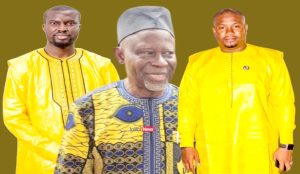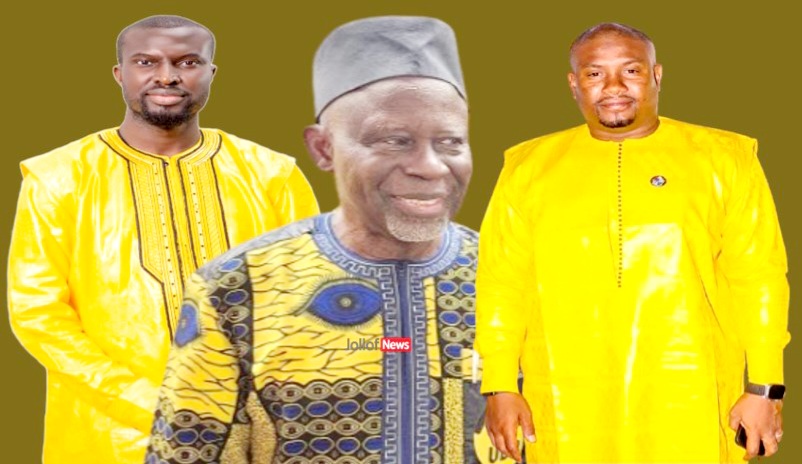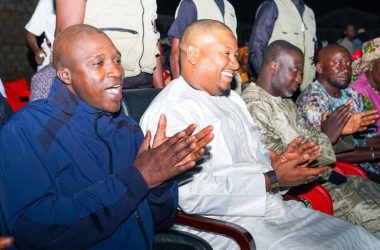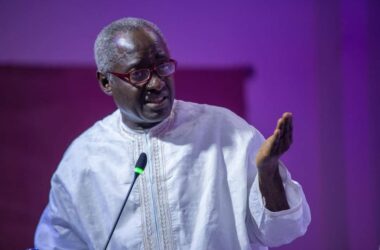Gambia’s main opposition party is at a dangerous crossroads, and the man trying to push it closer to the brink is the young mayor of the Kanifing Municipality Talib Bensouda.
For years and months, Talib consistently promised that if the leader Ousainou Darboe declared his intention to contest the 2026 presidential election, he would not seek nomination for the UDP flagbearer role.
However, in what came as a shocking betrayal to many UDP loyalists, Talib reneged on his promise and went ahead to submit his nomination papers.
This is not just about ambition but it raises honesty and loyalty questions.
However, Gambians are no strangers to these kinds of broken promises. It was not ages ago when President Adama Barrow promised to leave the stage after presiding over a transitional government for three years, only to cling onto power when it became politically convenient for him. That betrayal eroded trust fast and left the coalition in tatters. Talib is apparently singing from the same song-sheet, imperiling trust and party unity.
Bensouda has apparently found no problem with betraying Darboe, undermining the UDP and endangering his own credibility.
Contrast this with Brikama Area Council Chairman Yankuba Darboe, who made a similar promise and made good on it. The moment Ousainou Darboe announced his intention to run for President, Yanks publicly announced that he had decided to step aside. That act was a glaring indication of discipline and a strategic move to maintain party unity. Talib should have taken a cue from the BAC chair if he truly cared about UDP’s survival.
What Talib appears to have forgotten is the reality that there is no shortage of heavyweights in the UDP. The party is replete with well-educated people, whose loyalty to the party and experience, far outweigh the fleeting fame of younger aspirants. Bensouda’s popularity in KMC sprouted on the UDP platform and it’s the same platform that nurtured it and ensured it bloomed, not a personal movement. A hitherto unknown political quantity,Talib rode to prominence on the back of the UDP. His ascension to the national stage would probably still remain a pipedream if the UDP did not give him the chance.
Without the UDP, Talib would barely make it to national prominence. Now, his political future hangs in the balance and this coming UDP flagbearer selection is undoubtedly a make or break issue for him. If he fails to secure the party’s endorsement, his presidential ambition could blow into smoke before it even starts to germinate.
And let us be clear about Ousainou Darboe. For decades, he has courageously carried the sheer weight of the UDP on his shoulders, risking arrests, imprisonment, harassment, and many other forms of persecution. While others preferred to seek refuge in comfort, Darboe sacrificed his freedom and career for the survival of both the UDP and the Gambia’s bloody struggle to restore democracy. For anyone to now even casually suggest that he “steps aside” is an affront to history. Leadership is not a birthright, and succession cannot be forced by ambition alone. It must be earned, and it must come at the right time.
Talib must also be cautious of the opportunists he surrounds himself with. He may be flattered with promises of “generational change” and his ego may be fed with illusions of popularity by these opportunists, the fact is that their interest is not his success. It is theirs. They will forsake him, leaving his political career in ruins if he fails.
Meanwhile, the ruling NPP and President Barrow would be watching this drama that Talib scripted with keen interest and probably rubbing their hands with glee and quietly celebrating.

The State House and the NPP would be the only beneficiaries of every rupture in the UDP. Barrow has a mastery of leveraging disunity and if the UDP walks into 2026 divided, it will comfortably deliver him a third chance at power.
This is the harsh truth: Talib’s decision is not simply a contest for a nomination. It is a battle for his political survival. But more importantly, it is a test of whether UDP can rise above selfish ambition and rally behind the man, who built the party with his blood, sweat, and tears.
If Talib fails to heed the chorus of voices of restraint, his rise could be short-lived and his career thrown into political oblivion. And, history will not judge him kindly as he would be remembered not as a leader, but as the man who betrayed his word and tried to undermine the very party that made him.





